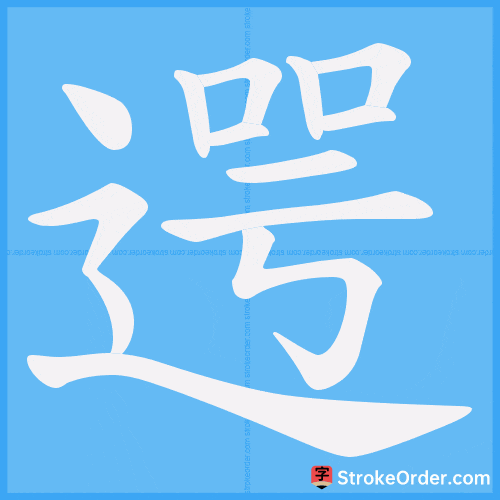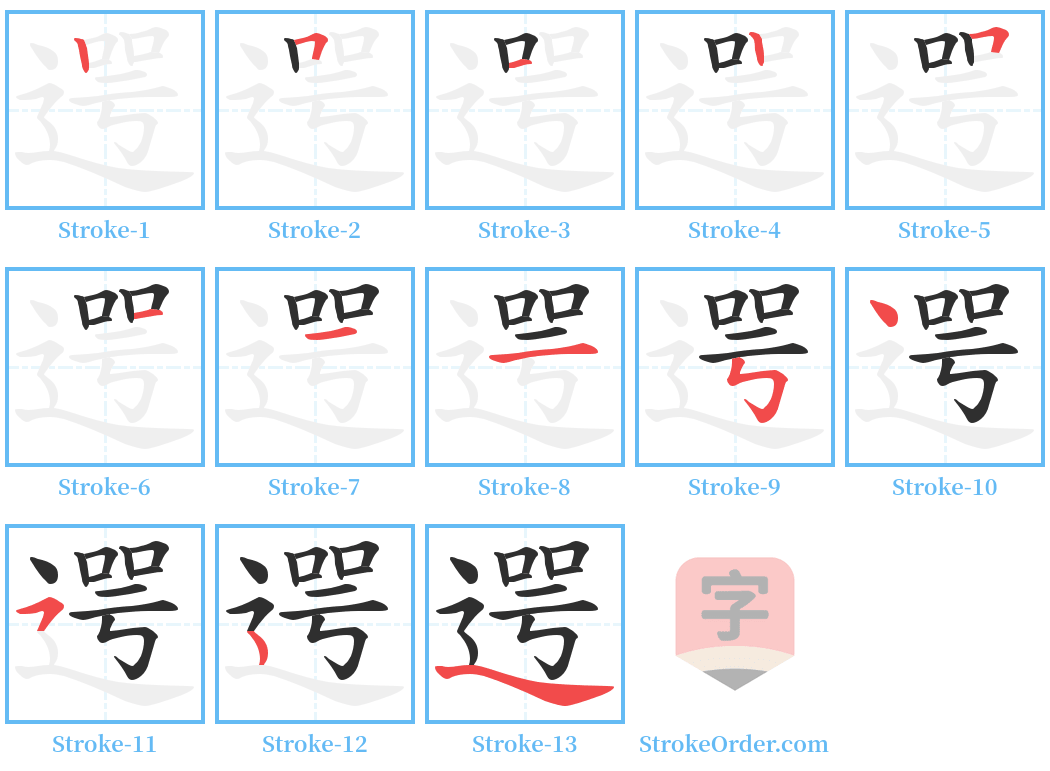遌 Stroke Order
Animated Stroke Order of 遌

Stroke Order Diagrams for 遌

Information of 遌
Pinyin
è
Radical
辶
Strokes
12 strokes
Usage
★★
Definition
遌 [è]
动
1. 遇,遇到 (meet, encounter)
例: "死生惊惧不入乎其胸,是故~物而不慴。"
Translation: "Life and death fears do not enter into his chest, hence he meets things and feels no shame."
2. 抵触 (conflict)
例: "牚距劫~,又足怪也。"
Translation: "The obstacles of robbery conflict with each other, which is quite strange."
引
1. 《说文》: 遌,相遇惊也。
Translation: "In 'Shuowen', it means to be startled by an unexpected meeting."
2. 《尔雅·释诂》: 遌,见也。 注: “心不欲见而见曰遌。”
Translation: "In 'Erya', it means to see. Note: 'When the heart does not wish to see yet sees, it is called 遌.'"
3. 《楚辞·怀沙》: 重华不可遌。
Translation: "In 'Chuci', it states that the heavy flowers cannot be unexpectedly encountered."
4. 班固《幽通赋》: 乘高而遌神兮。
Translation: "In Ban Gu's 'You Tong Fu', it says to soar high and unexpectedly encounter the spirit."
例
又如: 遌时 (遇时,逢时)
Translation: As another example: 遌时 means to encounter at the right time.
2. 抵触 (conflict)
例: 如: 颜(犯颜)
Translation: For example: 颜 means to offend in terms of facial expression.